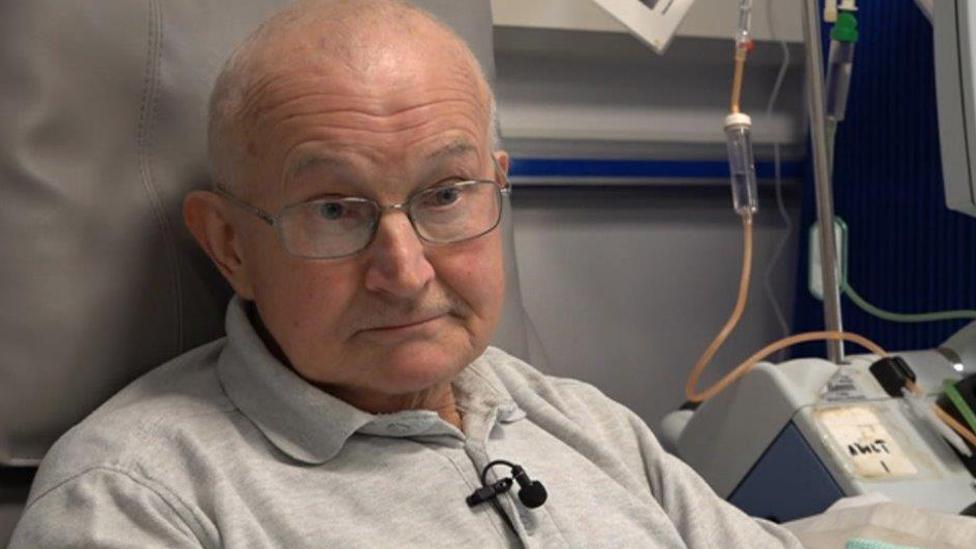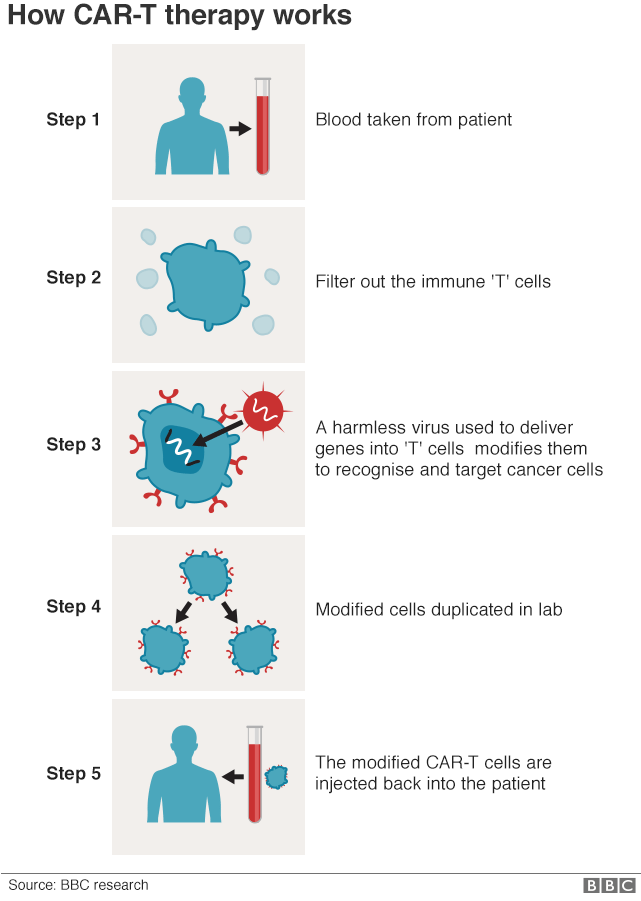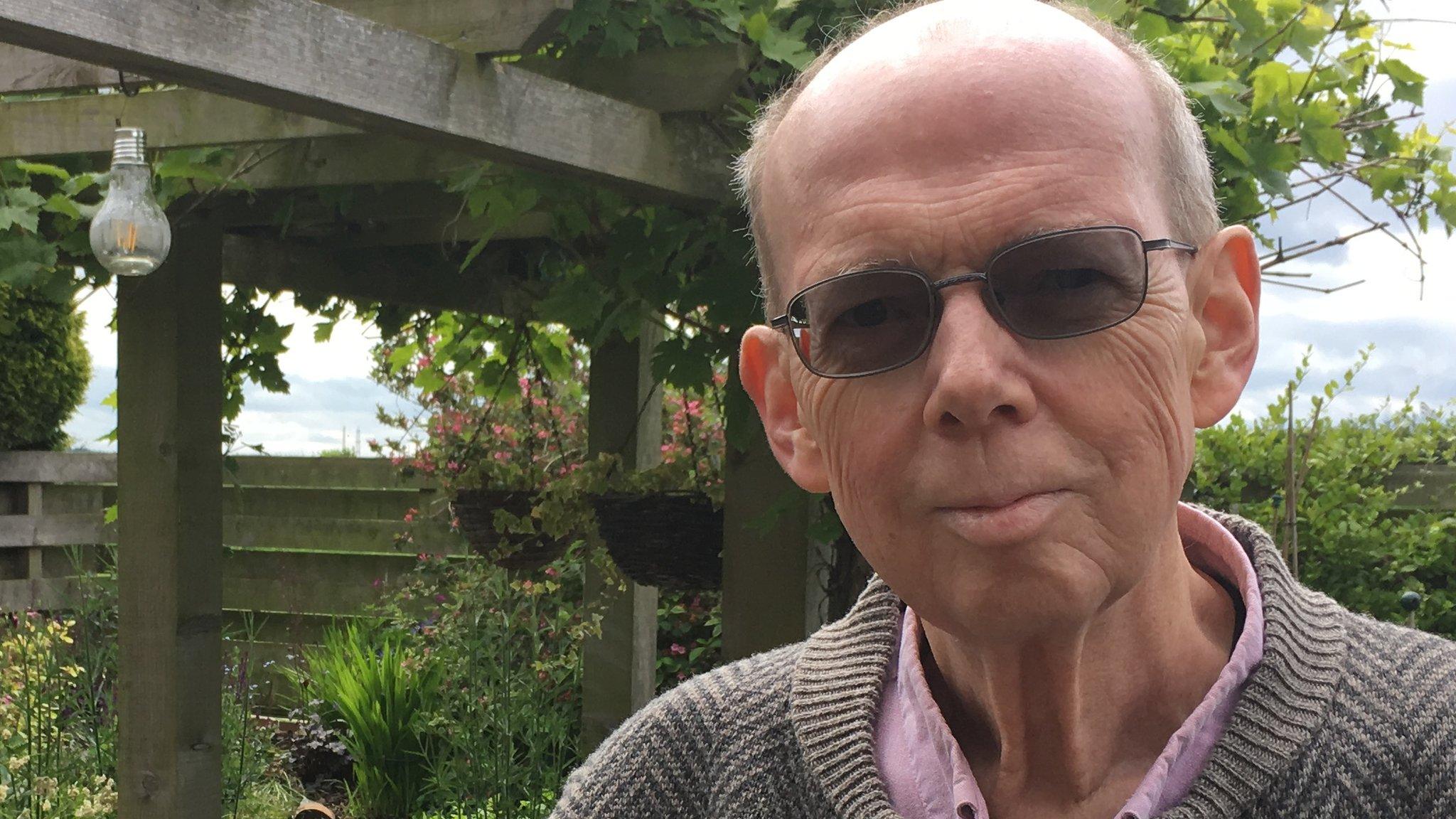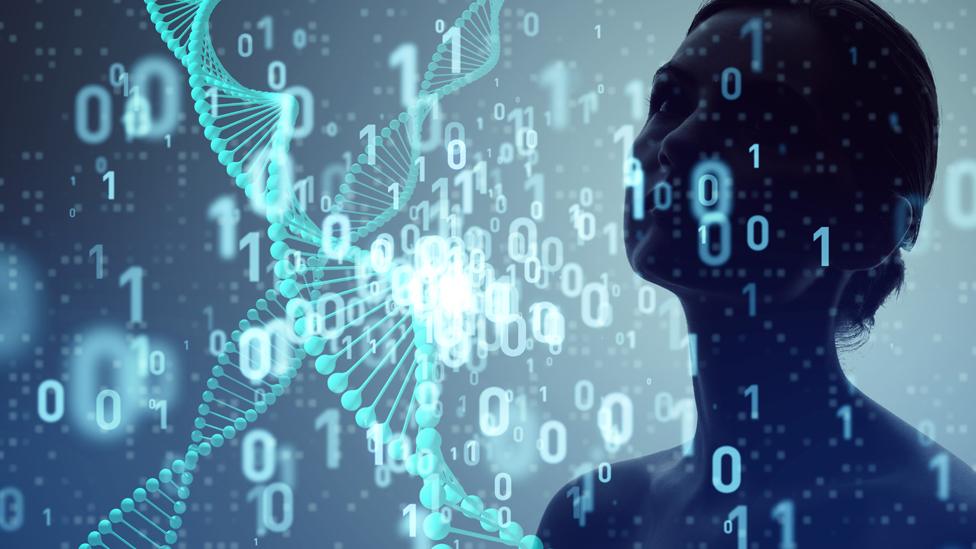Cancer patient is first in Wales to get gene treatment
- Published
"I'm unlucky to need it but I'm lucky enough to be approved by the panel," says John Davies
A patient has become the first in Wales to start on a revolutionary new genetic treatment for blood cancer.
CAR-T therapy involves genetically modifying a type of the body's immune cells in the hope they will then recognise and destroy cancer cells.
John Davies, 71, from Blackwood, will have his blood frozen in Amsterdam, then modified in the United States before being transfused, external next month.
Despite chemotherapy for several years, John's lymphoma has not been cured.
This is the first time in Wales the treatment has been offered after the go-ahead for NHS use last year.
The exact cost of the treatment is commercially sensitive but it is believed to be around a third of a million pounds.
In Wales, it is being funded by the Welsh Health Specialised Services Committee, external through the New Treatment Fund set up by the Welsh Government in 2017.
In England, CAR-T therapy is being funded through the cancer drugs fund.
This form of immunotherapy is a real world example of precision medicine as it has to be developed for each individual patient.

John says: "I expect the worst and hope for the best"
Retired civil servant John found out he had non-Hodgkin lymphoma, external five years ago when he went for a routine check-up.
He had numerous treatments without success before CAR-T therapy became available.
"It's not automatic - I'm unlucky to need it but I'm lucky enough to be approved by the panel," he said.
"I'm a bit of a pioneer, I'm doing this so hopefully that it might help those coming behind me - it might not work for me so I expect the worst and hope for the best."


What will happen to John's blood?
Parts of the immune system - white blood cells called T-cells - were removed from John's blood at the University Hospital of Wales in Cardiff on Monday.
Later that afternoon they were sent by courier to Amsterdam, and were frozen in liquid nitrogen before being flown to a laboratory in California.
There, the white blood cells will be genetically reprogrammed so that rather than killing bacteria and viruses, they will seek out and destroy cancer cells.
They are now "chimeric antigen receptor T-cells" - or CAR-T cells.
The cells will then be multiplied before being returned to Cardiff and put back into John in about a month's time.
John will need to be carefully monitored for a period in hospital for potentially dangerous side effects after being given the modified cells.
We will be following John's progress over the next few months.

This is a new therapy and very long-term data is still being generated, yet clinical trials have shown 40% of patients had all signs of their otherwise untreatable, terminal lymphoma eliminated from their body 15 months after treatment.
It was approved by the National Institute for Health and Care Excellence for NHS use in 2018 for specific patients for whom other forms of treatment have been unsuccessful.
Cardiff is the ninth site in the UK to offer the treatment - one of 13 specialist centres it is hoped will eventually be able to offer it.
About 130 patients in the UK have received CAR-T therapy so far in 2019.
Funding has to be approved on case-by-case basis and there will be an evaluation of its cost-effectiveness.
Dr Keith Wilson, clinical director of the South Wales Blood and Marrow Transplant Programme, said: "This is personalised medicine at its best. It's bespoke, tailored for the patient and unique for that particular patient.
"He has to donate his own cells, these are then tailored to match his own and cancer, and then when we return them to him in about a month's time, those cells will do what the immune system normally does - fight infection. Except in this case they have been tricked into thinking the cancer is infection."
John said he was very grateful.
"I've paid my tax... for 40 years but I think I'm greatly in arrears now after all the wonderful treatment."
- Published21 June 2019

- Published9 April 2019

- Published6 July 2017
